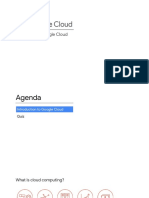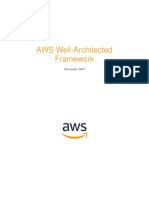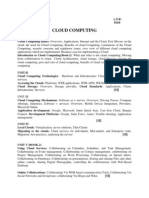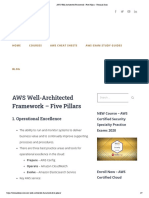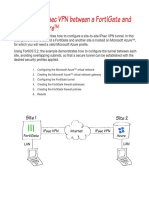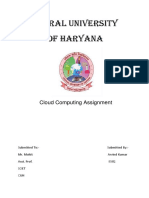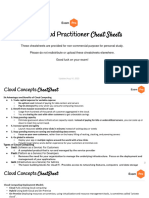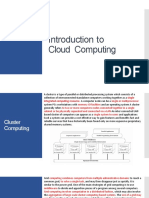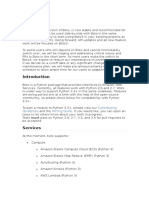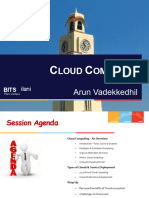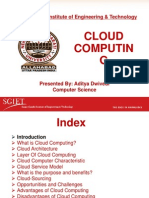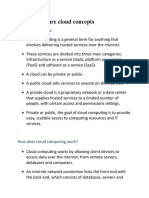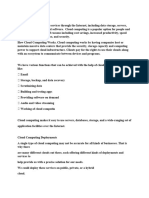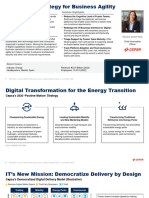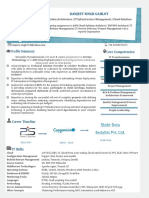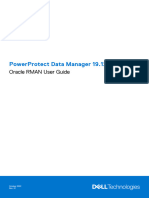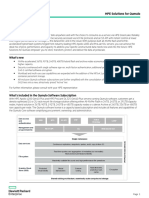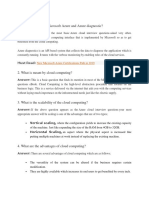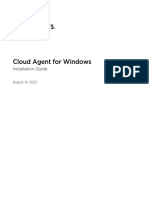0% found this document useful (0 votes)
249 views19 pagesCloud Computing Basics01
This document provides an overview of cloud computing, including what it is, why it is important to learn, career opportunities, industry applications, examples, key terms, and skills required. Specifically, it defines cloud computing as delivering IT services over the internet on a pay-as-you-go model. It lists career roles like cloud architect, developer, and administrator. It also gives examples of how cloud computing is used in industries like education, healthcare, automotive, and finance.
Uploaded by
skt160388Copyright
© © All Rights Reserved
We take content rights seriously. If you suspect this is your content, claim it here.
Available Formats
Download as PDF, TXT or read online on Scribd
0% found this document useful (0 votes)
249 views19 pagesCloud Computing Basics01
This document provides an overview of cloud computing, including what it is, why it is important to learn, career opportunities, industry applications, examples, key terms, and skills required. Specifically, it defines cloud computing as delivering IT services over the internet on a pay-as-you-go model. It lists career roles like cloud architect, developer, and administrator. It also gives examples of how cloud computing is used in industries like education, healthcare, automotive, and finance.
Uploaded by
skt160388Copyright
© © All Rights Reserved
We take content rights seriously. If you suspect this is your content, claim it here.
Available Formats
Download as PDF, TXT or read online on Scribd
/ 19


